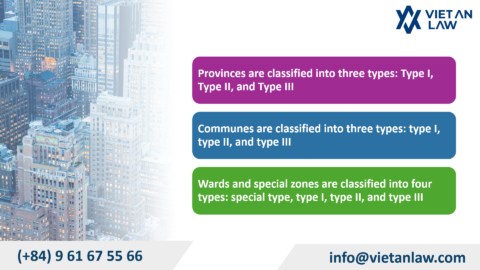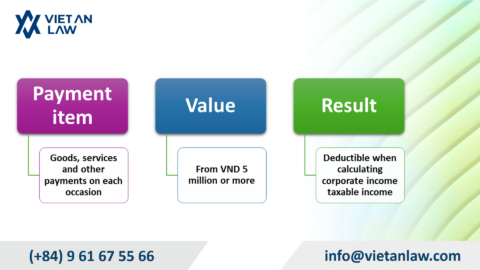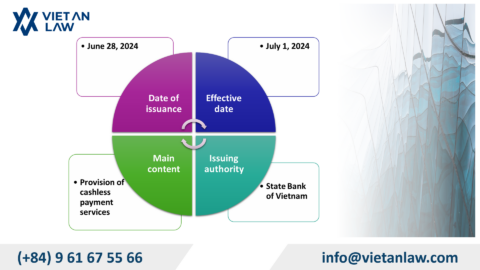Recently, the Government issued Decree 104/2025/ND-CP detailing and guiding the implementation of the Law on Notarization 2024, replacing Decree 29/2015/ND-CP. This Decree will officially take effect from July 1, 2025 with many updated regulations on notarization and authentication compared to previous regulations. Below, Viet An Law will present the updated regulations on notarization and authentication in Vietnam.
Table of contents
Article 15 of Decree 104/2025/ND-CP specifically stipulates the roadmap for completing the conversion and dissolution of Notary Offices as follows:
Provincial People’s Committees shall, based on the provisions of the Law on Notarization 2024, Decree 104/2025/ND-CP, laws on organization and reorganization of public service units and the actual situation in the locality, decide on the conversion and dissolution of local Notary Offices under the prescribed roadmap.
Thus, the roadmap for completing the conversion and dissolution of Notary Offices must be implemented before January 1, 2029.
If Article 6 and Article 7 of Decree 29/2015/ND-CP previously did not stipulate a specific time frame, but assigned localities based on actual conditions to develop a Plan and Project for conversion, Decree 104/2025/ND-CP has stipulated the conversion roadmap. Along with that, if the old regulation in Decree 29/2015/ND-CP required the procedure for converting a Notary Office to be carried out in 2 steps: developing a Conversion Plan (Article 6) and a Conversion Project (Article 7), then in Article 9 of Decree 104/2025/ND-CP, the step of developing a Plan is omitted, only requiring the development of a direct Conversion Project.
Article 14 of Decree 104/2025/ND-CP also clearly stipulates: A notary office that cannot be converted must be dissolved. Dissolution can only be carried out when the conditions in Clause 2, Article 22 of the Law on Notarization are met and after resolving the regime for notaries and employees.
Previously, the Law on Notarization 2014 only stipulated that Notary Offices were a type of partnership. However, from July 1, 2025, pursuant to the new regulations in Clause 1 and Clause 2, Article 23 of the Law on Notarization 2024, Notary Offices can be organized in the form of partnerships and private enterprises. This is suitable for district-level administrative units with low population density, underdeveloped infrastructure and services, and difficulties in establishing Notary Offices in the form of partnerships.
To guide this new regulation, Article 17 of Decree 104/2025/ND-CP clearly stipulates that Notary Offices are organized and operated in the form of private enterprises:
Decree 104/2025/ND-CP has specified many updated regulations on notarization and authentication in Vietnam of the Law on Notarization 2024, especially on electronic notarization, specifically:
Electronic notarization is notarization performed by electronic means to create electronic notarized documents, complying with the principles prescribed in Article 5 of the Law on Notarization 2024.
Pursuant to Article 47 of Decree 104/2025/ND-CP, an electronic notarization is a document created directly in the electronic environment according to one of two processes: Direct or online electronic notarization.
Accordingly, an electronic notarized document is a document created in an electronic environment, with the digital signature of the notary and the notary practice organization, and has the same value as a paper notarized document.
Regarding the scope of application of electronic notarization: Direct electronic notarization is applied to all civil transactions. Online electronic notarization is applied to civil transactions, except for testaments and other unilateral legal civil transactions.
Conditions for providing electronic notarization services
Conditions for using electronic notarization services:
Pursuant to Clause 1, Article 50 of the Law on Notarization 2024: A notarial requester, witness or interpreter shall append their signature to each page of a transaction in the presence of a notary. The signing of the notarized document in the presence of the notary must be photographed and stored in the notarial record..
Providing detailed guidance on this regulation, Article 46 of Decree 104/2025/ND-CP clearly states that photos must meet the following requirements:
In case the notarization involves a witness or interpreter, taking photos of the witness or interpreter signing or fingerprinting in the presence of the notary must also ensure the above requirements.
In case there are many people participating in the transaction signing a notarized document at the same time and at the same place, a photo of each signer may be taken in the presence of a notary or a photo of all signers in the presence of a notary; the photos must meet the above requirements. If the notarization is performed at different times or places, the photos must be taken in the presence of a notary at the corresponding times or places.
Previously, Decree 29/2015/ND-CP did not specifically list cases considered as other legitimate reasons as prescribed in Clause 2, Article 44 of the Law on Notarization 2014.
Article 43 of Decree 104/2025/ND-CP clearly lists 4 groups of cases considered as “other legitimate reasons”, including:
In addition, notarization outside the headquarters must be performed at a location with a specific address, consistent with the stated reason.
Chapter III of Decree 29/2015/ND-CP stipulates the principles of insurance purchase, coverage and payment conditions. However, the minimum insurance amount, insurance period, deductible… are not specific.
Decree 104/2025/ND-CP from Article 28 to Article 35 has detailed regulations:
Above are some updated regulations on notarization and authentication in Vietnam. If you have any related questions or need in-depth legal advice, please contact Viet An Law for the best advice and support!




